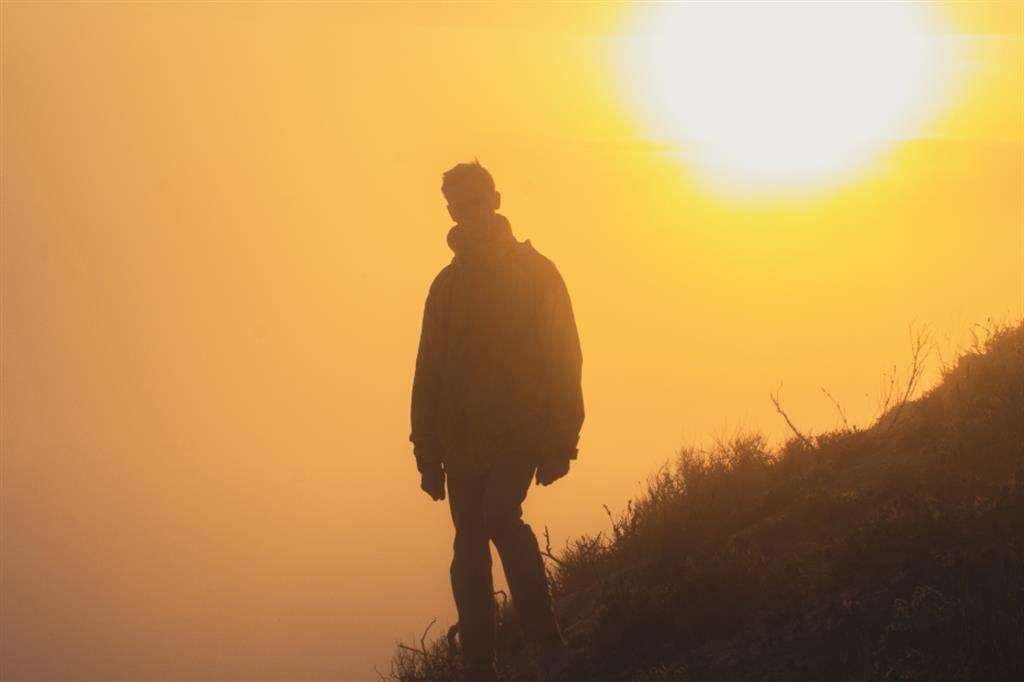
Unsplash
We anticipate large excerpts from the preface by Cardinal Gianfranco Ravasi to the new book by Ludwig Monti Walk in the light of life. Biblical Breviary to be released in the next few days for San Paolo (480 pages, 20.00 euros). In the volume, the biblical scholar offers, for each day of the year, a short biblical passage, from Genesis to Revelation, followed by a small meditation, to open paths and stimulate reflections, to guide our path in the light of life, as the title taken from Psalm 56.
It was the first days of September 1823 and Giacomo Leopardi in his Zibaldone he wrote down an etymology that surprised him. He had, in fact, discovered that “meditate” came from the Latin medeor which means «to cure, to medicate», for which he observed that «meditating on a thing is a continuation of simply having or taking care of it». We must, however, add that the Indo-European root med-, generator of the term «meditate», it also has the value of «thinking, reflecting». In this light, meditation is a cure for the soul, a sort of medicine for the spirit, a catharsis of the mind, and it is especially so when it points to reflection on the Word of God. It is the experience that is proposed in these pages , marked by the passing of the days of the year. This particular “book of hours” or “breviary” was elaborated by Ludwig Monti, a very fine interpreter of the Bible to whom he has already dedicated many works of great quality and originality. Mine is now the testimony not only of friendship but also of the harmony that binds me to his research, it is even an expression of a non-rhetorical admiration for his writings that I have been following for some time. An emblem for all is the stupendous commentary he dedicated to the book of Psalms in 2018. Now, therefore, we have in our hands these brief meditations of his which in themselves can only occupy a few minutes of each day. Yet they are destined to leave a trace in the spirit, to inject a ferment into our thinking and acting, to produce a sort of vaccine against superficiality, banality, commonplace. Another great of Western culture like Montaigne in his Wise men he warned that “meditating is a powerful and full occupation: I prefer to form my soul rather than furnish it”. To give substance to these essential reflections is, as we said, the Word of God through a minimal quotation, almost a flash, a fragment taken from almost all the 73 books that make up that sacred library which is the Bible. Always to resort to another authoritative voice, what Marcel Proust said in In Search of Lost Time is suggestive: “By quoting an isolated verse, its attractive force is multiplied”. And this is what happens in the daily texts that will follow, where the splinter taken from the Sacred Scriptures, illustrated by a minimal but illuminating commentary, then expands into an application, sometimes also supported by the voices of contemporary authors. However, the divine Word always dominates, for which both the commentary and the concrete application are inlaid with scriptural references, so that it is the Bible that comments on itself, in a sort of palimpsest or watermark of constant references. One thinks of a dazzling verse from the prophet Jeremiah: “Isn’t my word like fire – oracle of the Lord – and like a hammer that splits rock?” (23.29). And just as happens to the iron mace which shatters the rock causing sparks to fly, so whoever lets himself be conquered by the Word, similar to a burning fire, is wounded in the heart and in the mind: a wound that turns into a wound on the mystery, on the eternal and infinite of God. Those sparks that have become flames can also gather in a torch which – as the Psalmist suggested – is «a lamp for the steps, a light for the path» (119,105). It is not for nothing that the title chosen by Ludwig Monti is significant of his invitation to the reader, Walk in the light of life. And here another aspect comes into the picture which reveals itself constantly in these meditations, their being “daily”, not only chronologically but also in their substance. In fact, the God of the Bible is not an impassive Aristotelian “Immovable Mover”, relegated to his golden sky, but chooses to walk with humanity, to live next to their homes, to share with them – through the Son – laughter and tears, desolation and hope, life and death. The prophet Isaiah admirably intertwined God’s transcendence and immanence, eternity and history, infinity and space with this divine oracle: “In a high and holy place I dwell, but I am also with the oppressed and the humble” (57:15). And John, in the admirable opening hymn to his Gospel, to the Logos, to the eternal Word, had the sarx, the “flesh” of our finitude, fragility and death (1,1.14). Thus, in an analogous way whoever embarks on the journey of life must have above him the wind of the Spirit blowing from above, but must also advance with his feet trampling the often dusty and stony paths of history. The meditative glimpses of this particular “breviary” therefore follow the appeal of the Jewish tradition which invited us to sing “a song every day, a song for every day”. A breath of praise that rises to the Most High, but also a plea for suffering, crises and daily expectations. However, this must always be not a “solo” but a choral song, as is constantly the case in the Bible. Here we would like to leave the floor for once to Monti himself in one of his reflections which is anchored in a Gospel phrase: “Where two or three are gathered in my name, there I am, in the midst of them” (Mt 18:20). In the light of the context dedicated to fraternal correction, he comments: «Where there are not two or three in a symphony, I am not there, says Jesus; that is, I would be there, I am always there, but if you don’t agree among yourselves, you cannot experience my presence. Serious question: What symphony or cacophony brings all life together? Prayer is its echo, sometimes faint. But life always leaves a set of sounds in the air: perfumed or malodorous; cheerful or poisonous; harmonious or out of tune. And then: symphony or cacophony?». In fact, our journey through history is not solitary, but we proceed by shaking the hand of brothers and sisters who live with us the flow of time and who often seek a hand to support them and not leave them at the side of the road.

